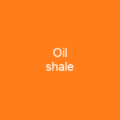What Exactly Is Oil?
Oil, a term that has been around for centuries, is more than just a substance used in cooking or as fuel. It’s a complex mixture of hydrocarbons with diverse applications and origins. Have you ever wondered what makes oil so versatile? Let’s dive into the world of oils and explore their fascinating properties.
Origins and Types
Oil can come from various sources, including plants, animals, or even ancient fossilized organic materials. The word ‘oil’ itself has a rich history, tracing back to Old French oile, Latin oleum, Greek ἔλαιον (elaion), and first appearing in English as early as 1176. This evolution of the term reflects the diverse uses and origins of oils throughout human history.
Organic Oils
Organic oils are produced by plants, animals, or organisms. These include vegetable oils like olive oil, which is not only used in cooking but also for its health benefits. Animal fats, such as lard from pigs, have been used for centuries and still find their place in various culinary applications today.
Mineral Oils
On the other hand, mineral oils are derived from ancient fossilized organic materials. These oils are commonly used in lubricants, cosmetics, and even as a base for some paints. They offer unique properties that make them suitable for specific industrial applications.

Applications of Oils
Oils are used in a myriad of ways, from cooking and lubrication to medical treatments and even religious ceremonies. Have you ever stopped to think about how many products in your daily life contain or use oil? From the lotion on your skin to the paint on your walls, oils play a significant role.
Cooking
In the kitchen, oils are essential for cooking. They not only add flavor but also help in frying and sautéing. But did you know that some oils can be used as a base for salad dressings or even drizzled over vegetables to enhance their taste? The choice of oil can significantly impact the final dish.
Medical Uses
Oils have long been recognized for their medicinal properties. For instance, coconut oil is known for its anti-inflammatory effects and is used in various skincare products. But beyond topical applications, some oils are ingested to promote hair growth or improve overall health. The benefits of using natural oils in medicine are still being explored and appreciated.
Religious Ceremonies
In many religious practices, oils serve as purifying agents. They are used in rituals to cleanse the body and soul, symbolizing renewal and transformation. This use of oil in spiritual contexts highlights its versatility beyond practical applications.
Fuel and Chemical Feedstock
Crude oil is a major source of energy and raw materials for various industries. When refined, it produces diesel fuel, jet fuel, gasoline, kerosene, benzene, and liquefied petroleum gas. These products power our vehicles, homes, and industries, making crude oil one of the most critical resources in modern society.
Crude oil is also a valuable source for petrochemicals and organic oils used in detergents, fertilizers, medicines, paints, plastics, synthetic fibers, and synthetic rubber. These products are essential components of our daily lives, often unseen but crucial nonetheless.
Conclusion
Oils, with their diverse origins and applications, have become an integral part of human life. From the kitchen to the laboratory, from religious ceremonies to industrial processes, oils play a multifaceted role in shaping our world. As we continue to explore new uses for these fascinating substances, one thing is certain: oil remains a cornerstone of modern civilization.
You want to know more about Oil?
This page is based on the article Oil published in Wikipedia (retrieved on February 27, 2025) and was automatically summarized using artificial intelligence.






